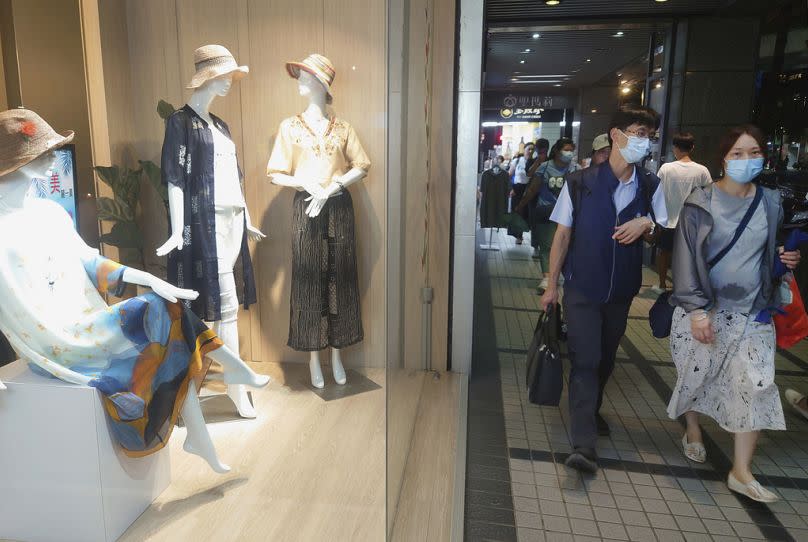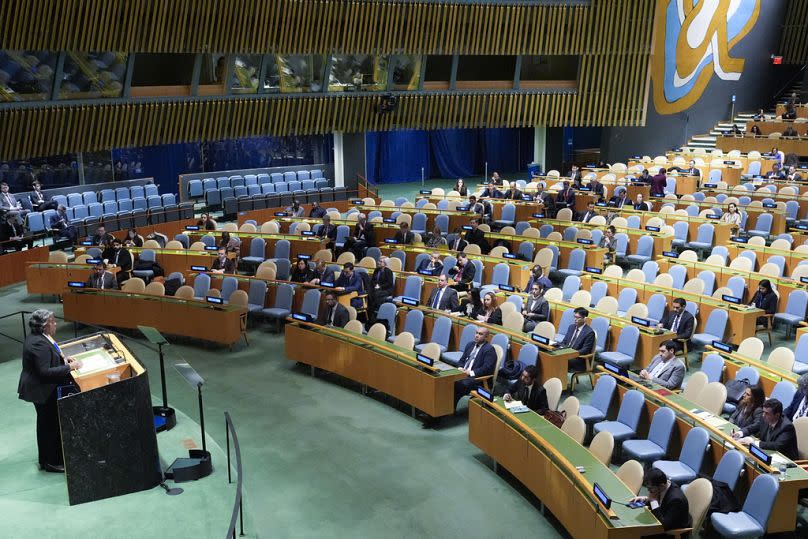In the 'WHO blockade' of Taiwan, everyone is a loser

Four years after the outbreak, the world is finally recovering from COVID-19. The global community has learned many lessons to prepare for the next pandemic, yet others seem to remain unheeded.
One of the profound lessons learned is that viruses respect no borders or boundaries made by man and that pandemics are truly a global threat in this interconnected world.
The public health community also agrees that there will be more pandemics. Therefore, the key element of our preparation for the next global health crisis is a cooperation network built upon a “no-one-left-behind” approach.
Unfortunately, four years later, Taiwan remains locked out of the international system of public health governance.
This "Taiwan blockade" from the World Health Organization (WHO) significantly deprives the fundamental public health rights of more than 23.5 million Taiwanese people.
More importantly, it represents a significant loophole in the global pandemic prevention and preparation framework.
Pandemic might be over, but the blockade of Taiwan remains
It is because, among other reasons, Taiwan has found itself at the epicentre of several past pandemics, and has thus developed a robust monitoring, detection and response system.
This allows Taiwan to offer itself and the world valuable early warning information, clinically proven response mechanisms and other public health solutions.

In short, there is much for Taiwan to contribute to the world's better preparedness for future global health challenges, and there is equal gain for the Taiwanese people to be included in the system.
If it had been left to public health experts to decide, perhaps Taiwan’s participation in the WHO would have long been settled as a non-issue.
A life of dignity and health for all must be at the heart of our policies
The EU and Taiwan must partner up in the fight against malign interference
Sadly, this "Taiwan blockade" has been dominated by purely political arguments. In particular, the People's Republic of China (PRC) has repeatedly argued that Taiwan's WHO participation would violate the UN General Assembly (UNGA) Resolution 2758, passed in the year 1971, and a large number of WHO member states seem to have just accepted this.
The problem, however, is the question that remains: is there a genuine case to support the "Taiwan blockade" based on UNGA Resolution 2758?
Taiwan's WHO participation left unaddressed
It takes less than a minute to seriously doubt this argument simply by reading the very short resolution. First and foremost, the resolution serves solely to certify that the PRC government are the lawful representatives of China; it does not address anything else, especially not Taiwan's meaningful participation in the UN system.
Second, and equally important, the resolution does not reflect any consensus that would oblige UN members to reject proposals without substantive elaboration whenever the word “Taiwan” appears on the agenda.

The only remaining justification to support the "Taiwan blockade" with UNGA Resolution 2758 would be that Taiwan's WHO participation would create the risk of undermining or challenging the PRC's lawful representation in the UN system.
This is an imaginary scenario stemming from a distorted understanding. Taiwan's inclusion in the WHO system can be done in many forms, and the key objective has always been to contribute and participate without any intention to challenge the PRC’s representative status or create political difficulty for anyone.
Could the COVID-19 pandemic have been avoided if China were a democracy?
Kleptocrats in democracy’s clothing: Beijing and Moscow talk anti-corruption at the UN
In this regard, practical solutions, including the granting of observer status for Taiwan, that can achieve this objective while accommodating China's discomfort are available for WHO members to consider.
Least optimal solution based on a false justification
Different options have merits and disadvantages, and they indeed require further discussion.
Yet one thing is clear: the current "blockade" approach is the least optimal solution because all stakeholders, including Taiwan, the PRC, and the global health community, are losers (for China, insecurity remains a constant threat).
Removing Taiwan's "WHO blockade" would achieve an optimal outcome.
It is also an efficient and justified way to demonstrate the democratic world's commitment to defending the rightful interpretation of UN resolutions and deter any unilateral blockades that would jeopardise global welfare and interests, whether they concern public health or any other area.
Ambassador Roy Lee serves as Representative of Taiwan to the EU and Belgium.
Contact us at view@euronews.com to send pitches or submissions and be part of the conversation.

